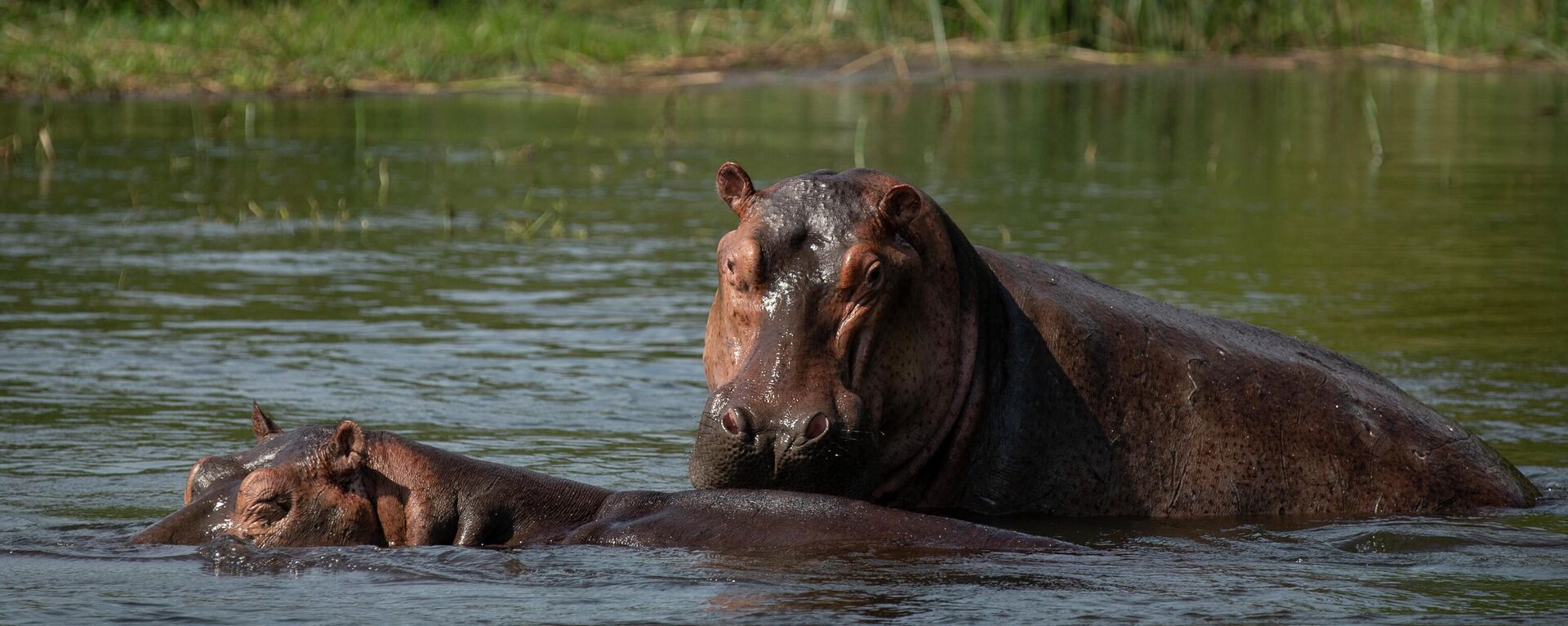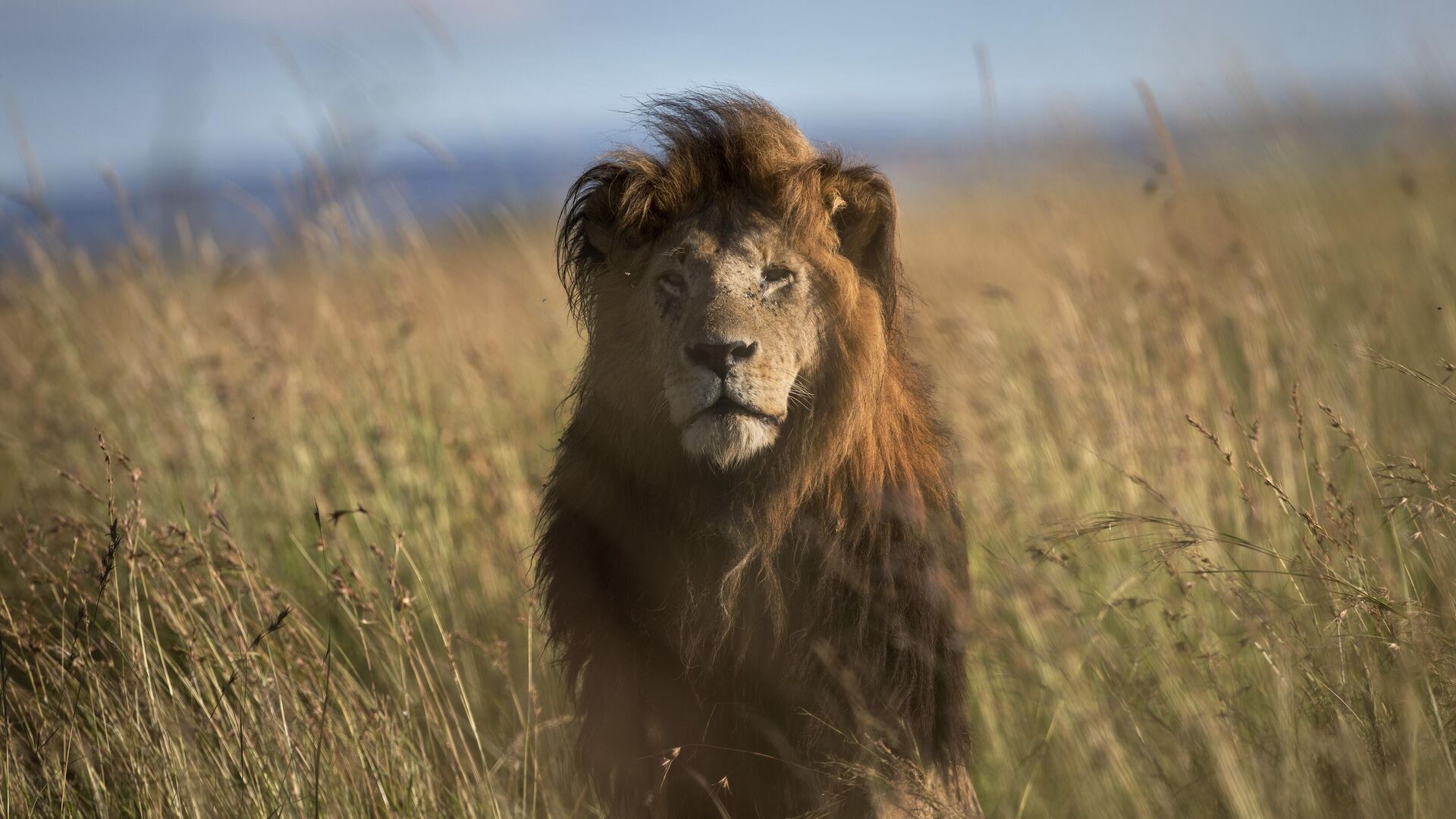https://sputnikglobe.com/20221207/un-cop15-on-biodiversity-starts-amid-backdrop-of-african-wildlife-losses-1105160713.html
UN COP15 on Biodiversity Starts Amid Backdrop of African Wildlife Losses
UN COP15 on Biodiversity Starts Amid Backdrop of African Wildlife Losses
Sputnik International
The 2022 United Nations Biodiversity Conference opened on Wednesday in Montreal, Canada, with the goal to adopt a global biodiversity framework.
2022-12-07T15:05+0000
2022-12-07T15:05+0000
2022-12-07T15:05+0000
africa
canada
biodiversity
animal
animal rescue
flora
convention on international trade in endangered species of wild fauna and flora
wildlife
cop
https://cdn1.img.sputnikglobe.com/img/07e6/0c/07/1105160865_0:0:3299:1856_1920x0_80_0_0_adc02f48be347e34fe68b01dad7e1fcc.jpg
The 2022 United Nations Biodiversity Conference opened on Wednesday in Montreal, Canada, with the goal of adopting a global biodiversity framework. Delegates from 196 countries will discuss the adoption of the so-called “30 by 30” initiative, which involves the designation of 30% of Earth's land and ocean area as protected areas by 2030.As UN data shows, Africa hosts a quarter of Earth’s biodiversity, being one of the world’s most biodiverse regions. However, it is under threat of losing its natural treasures, with an observed 59% drop in the abundance of large mammal populations between 1970 and 2005, as well as a projected 50% decline of lion populations over the next 20 years in West, Central, and East Africa.According to a World Wildlife Fund (WWF) report, global wildlife populations have on average dropped by around 69% since 1970. The organization has alerted that the main driver behind the current rapid rate of biodiversity loss is human activity since the Industrial Revolution.African biodiversity is endangered by different factors, one of the primary ones being climate change, which, according to experts, could cause the loss of more than 50% of Africa's bird and mammal species by 2100.Recently, a 30 to 50% reduction in the hippopotamus population during the past decade has been reported. According to the media, ten African states called for the EU to accept a ban on the commercial trading of hippo products in order to prevent poaching.
https://sputnikglobe.com/20221108/african-countries-reportedly-slam-eu-for-failing-to-preserve-hippos-from-poaching-1103886403.html
africa
canada
Sputnik International
feedback@sputniknews.com
+74956456601
MIA „Rossiya Segodnya“
2022
News
en_EN
Sputnik International
feedback@sputniknews.com
+74956456601
MIA „Rossiya Segodnya“
Sputnik International
feedback@sputniknews.com
+74956456601
MIA „Rossiya Segodnya“
africa biodiversity, hippos in africa, biodiversity decline, 30 by 30, 2022 united nations biodiversity conference, world wildlife fund
africa biodiversity, hippos in africa, biodiversity decline, 30 by 30, 2022 united nations biodiversity conference, world wildlife fund
UN COP15 on Biodiversity Starts Amid Backdrop of African Wildlife Losses
The 27th United Nations Climate Change Conference, dubbed “the African COP” concluded in Egypt one month ago. Now, the COP15 on Biodiversity kicks off, which may result in important decisions for the Black Continent as well.
The 2022 United Nations Biodiversity Conference opened on Wednesday in Montreal, Canada, with the
goal of adopting a global biodiversity framework.
Delegates from 196 countries will discuss the adoption of the so-called “30 by 30” initiative, which involves the designation of 30% of Earth's land and ocean area as protected areas by 2030.
As UN data
shows, Africa hosts a quarter of Earth’s biodiversity, being one of the world’s most biodiverse regions. However, it is under threat of losing its natural treasures, with an observed 59%
drop in the abundance of large mammal populations between 1970 and 2005, as well as a projected 50%
decline of lion populations over the next 20 years in West, Central, and East Africa.
According to a World Wildlife Fund (WWF) report, global wildlife populations have on average dropped by around 69% since 1970. The organization has alerted that the main driver behind the current rapid rate of biodiversity loss is human activity since the Industrial Revolution.
“There is some evidence that we could probably reduce our food waste by half. You’re thinking, well how could that save an elephant in Africa? Well, that means that we don’t need to deforest another hectare of land to produce palm oil,” she said.
African biodiversity is endangered by different factors, one of the primary ones being climate change, which, according to experts, could
cause the loss of more than 50% of Africa's bird and mammal species by 2100.
Recently, a 30 to 50% reduction in the hippopotamus population during the past decade has been
reported. According to the media, ten African states called for the EU to accept a ban on the commercial trading of hippo products in order to prevent poaching.

8 November 2022, 14:01 GMT



